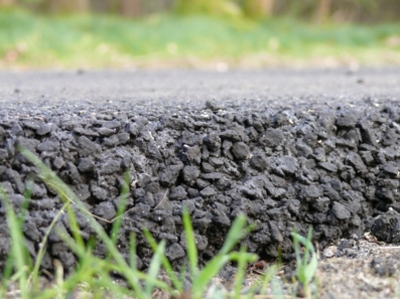Checking Out the Ecological Advantages of Warm Mix Asphalt
The use of Hot Mix Asphalt in framework jobs provides a compelling case for lasting growth and environmental stewardship. By diving into the elaborate details of its production processes and the innovative usage of recycled materials, a much deeper understanding emerges of how this innovation goes beyond plain surface applications. The ecological benefits of Hot Mix Asphalt extend far past initial perceptions, supplying a nuanced viewpoint on exactly how this material can lead the way for a greener future.

Lowered Greenhouse Gas Emissions
Hot Mix Asphalt production supplies a considerable reduction in greenhouse gas discharges contrasted to various other sidewalk products. The production process of Warm Mix Asphalt includes heating up the mixture of aggregate and asphalt binder to heats. This process needs much less power contrasted to the manufacturing of different pavement materials, resulting in lower greenhouse gas exhausts. Furthermore, making use of recycled products in Hot Mix Asphalt additionally adds to reducing its environmental impact. By incorporating redeemed asphalt pavement and recycled asphalt shingles into the mix, the need for virgin products is lowered, bring about energy cost savings and decreased discharges connected with extraction and handling.
Researches have actually shown that Warm Mix Asphalt pavements have a smaller sized carbon footprint over their life cycle compared to various other pavement options. The toughness and recyclability of Warm Mix Asphalt further enhance its ecological advantages by minimizing the demand for frequent upkeep or replacement, thereby saving sources and reducing discharges connected with restoration tasks.
Energy Performance and Conservation
The production process of Hot Mix Asphalt not only minimizes greenhouse gas exhausts however likewise contributes significantly to power performance and conservation efforts. Energy efficiency is a key advantage of Warm Mix Asphalt manufacturing compared to other pavement kinds. The longevity of Warm Mix Asphalt minimizes the regularity of upkeep and reconstruction, leading to lasting energy financial savings.
Sustainable Sidewalk Solutions

One trick element of lasting pavement services is making use of recycled products such as reclaimed asphalt pavement (RAP) and recycled asphalt tiles (RAS) By integrating these products right into the asphalt mixtures, the need for virgin resources is lowered, leading to lower power consumption and greenhouse gas discharges during production. Furthermore, the reuse of these materials helps divert waste from landfills, adding to an extra sustainable and round economy.
Furthermore, lasting sidewalk options focus on optimizing sidewalk layout to improve performance and longevity. Strategies such as cozy mix asphalt (WMA) and stone mastic asphalt (SMA) boost the durability and strength of pavements, decreasing the need for constant repair services and replacements. By applying these cutting-edge methods, infrastructure programmers can produce pavements that not just meet high-performance criteria however likewise decrease their ecological footprint.
Minimized Environmental Influence
With a concentrate on sustainability and eco-conscious practices, sidewalk solutions are made to reduce the ecological effect of construction and upkeep processes. Hot mix asphalt, in particular, uses several advantages that add to minimizing the overall environmental impact of roadway framework. One key element is the recyclability of asphalt, which can be recycled multiple times without endangering its quality. This characteristic aids in conserving natural sources and minimizing the amount of waste sent out to landfills.
Furthermore, the manufacturing of warm mix asphalt produces lower levels of greenhouse gases compared to other pavement materials, making it a much more eco-friendly option. The power effectiveness of asphalt plants has likewise improved over the years, bring about decreased fuel consumption and reduced discharges. Furthermore, the smooth surface of warm mix asphalt minimizes rolling resistance for lorries, resulting in reduced gas usage and decreased air pollution from car exhausts.
Payment to Environment Modification Reduction
Warm mix asphalt plays a critical function in mitigating climate adjustment through its sustainable residential or commercial properties and decreased environmental impact. One considerable contribution to climate adjustment reduction originates from the power performance of warm mix asphalt production. Contrasted to various other sidewalk alternatives, the manufacturing process for warm mix asphalt consumes much less power and releases reduced degrees of greenhouse gases, therefore decreasing its general carbon footprint.
Moreover, hot mix asphalt's ability to mirror sunlight, called albedo, helps in lowering city warmth island impacts. By reducing warm absorption and retention, warm mix asphalt pavements can decrease the demand for a/c in urban locations, consequently lowering greenhouse gas discharges connected with power consumption for cooling down objectives.
In addition, the longevity and recyclability of warm mix asphalt better enhance its climate modification reduction capacities. Regrading. The lengthy lifespan of asphalt sidewalks reduces the demand for frequent repair work or substitutes, eventually lowering the carbon discharges connected to road upkeep activities. The recyclability of asphalt products reduces the need for virgin resources and reduces the ecological impact of pavement building and construction, aligning with sustainable methods for environment change mitigation.
Verdict
To conclude, the environmental advantages of Warm Mix Asphalt demonstrate its considerable payment to reducing greenhouse gas emissions, saving power, and minimizing environmental effect. This lasting sidewalk solution aligns with climate modification reduction initiatives, advertises source conservation, and enhances infrastructure advancement. By using recycled products, energy-efficient manufacturing procedures, and durable design, Hot Mix Asphalt plays a vital function in fostering an extra eco friendly technique to framework building.
The production process of Warm Mix Asphalt involves warming the mixture of accumulation and asphalt binder to high temperature levels. By incorporating reclaimed asphalt angled parking pavement and recycled asphalt roof shingles right into the mix, the requirement for virgin materials is minimized, leading to power financial savings and lowered discharges connected with extraction and processing.
One trick facet of sustainable pavement remedies is the usage of recycled products such as redeemed asphalt sidewalk (RAP) and recycled asphalt roof shingles (RAS) Techniques such as cozy mix asphalt (WMA) and stone mastic asphalt (SMA) boost the durability and resilience of sidewalks, minimizing the requirement for frequent repairs and replacements. Contrasted to other pavement alternatives, the production process for hot mix asphalt eats much less energy and produces reduced degrees of greenhouse gases, thus lowering its general carbon footprint.